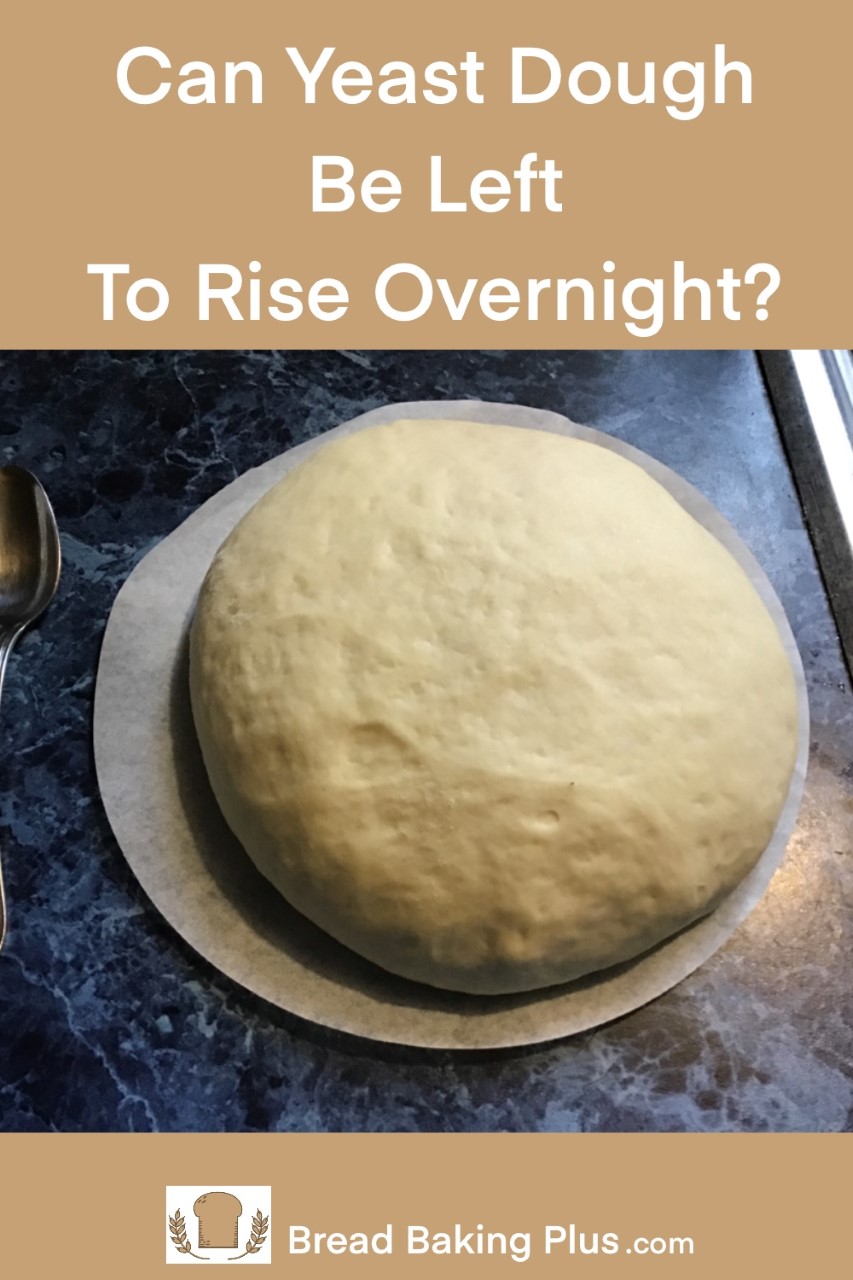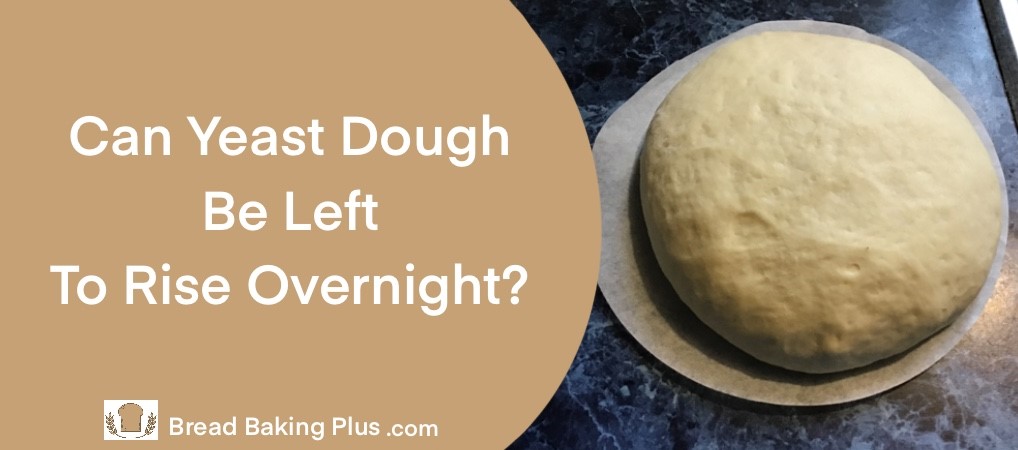Making your own bread at home has many benefits, but it requires a few hours to make the dough, let it rise, shape the loaf then let it proof, finally you can bake it, and as you well know, the whole process takes a few hours.
As a person who loves to bake your own bread, you also have a few more things to do, go to work, do some chores and take care of your family, most of the times, you might find yourself working on the different steps of making your own bread in between, for this reason, you might be wondering if you can make the dough one day and bake your bread next day.
Can Yeast Dough Be Left To Rise Overnight?
Can Yeast Dough Be Left To Rise Overnight? Yes, you can make your dough one day and store it in the fridge, where the low temperatures will slow the process, the storing time will depend on the recipe, some can be left at room temperature, but there’s the risk of over fermentation.
Keep Yeast Dough On Low Temperature
When you use this method of low temperature to let a yeast dough to rise, there are two ways to do it:
Let dough to rise in the fridge, and next morning you can take it out from the fridge, let the dough to get to room temperature and shape your bread following your recipe instructions, then let the dough proof and then you can bake your bread.
Make your bread dough, let it rise and shape your bread and place it on a baking pan, cover it with a plastic wrap, and place it the fridge. Next day, take the baking pan out of the fridge and let the dough to proof, you might need to loosen the plastic wrap to allow the dough to proof well, whenever your dough doubles its size, you can bake your bread.
Both methods are good, and you can choose one from the other depending on your schedule on the day you make your dough and the next day.
To choose one method to the other, you need to know in advance your schedule and also your recipe, in case you’re making your bread for a special occasion, I will advise you to try your recipe in advance.
As an artisan small bakery owner, I learned from my teachers, I could make the dough for a few different types of bread the previous day, store all bread doughs in the fridge and work each dough to shape the bread early in the morning next day, working this way, bread will be always be fresh and on time for the clients, and many bakeries work this way, but bakers know well their recipes.
More Tips On How To Leave A Yeast Dough To Rise Overnight
Find A Room With The Lowest Temperature
As the kitchen is where cooking happens, this room might keep a warmer temperature during overnight, for this reason it won’t be advised to leave any yeast dough overnight in the kitchen as it can over fermented.
If you’re looking to make a dough the previous day to bake it next morning, look for the room with the coolest temperature in your house, don’t forget to leave the yeast out of reach from children and pets and covered with a plastic film.
Next To A Window
If you don’t find another room in your house with a lower temperature, and you’re only option is the kitchen, then you can leave the yeast dough next to a window.
Run A Test
As a baker I know that one of the hardest parts of making a yeast bread is the time-consuming of making the dough and wait for the dough to rise and then to proof.
When you work at a bakery, this might not be a concern as your job is making doughs and bread, but when you need to go to work and take care of your family, making a new bread loaf might be hard to fit in your busy schedule, for this reason it is always better to try some recipes that you love the result and you can make the dough the previous day, leave the dough in the fridge and bake it the next day.
My best tip here is to run a test with the recipe you want to make, check if it works good by keeping it in the fridge for 8, 12 or even 24 hours.
Pay attention if it works good with the yeast quantity on the recipe or if you need to take off a couple of grams of yeast from the recipe, as you might know less yeast in a recipe will take longer time to rise and proof.
Closing
There is always a good way to keep making your own bread in a busy schedule, we know that you love to bake your own bread and we hope these tips help you to keep baking fresh bread for yourself and for your family.
If you have another tip that is working well for you, share it on a comment, we can learn more from each others.
Happy Baking!

